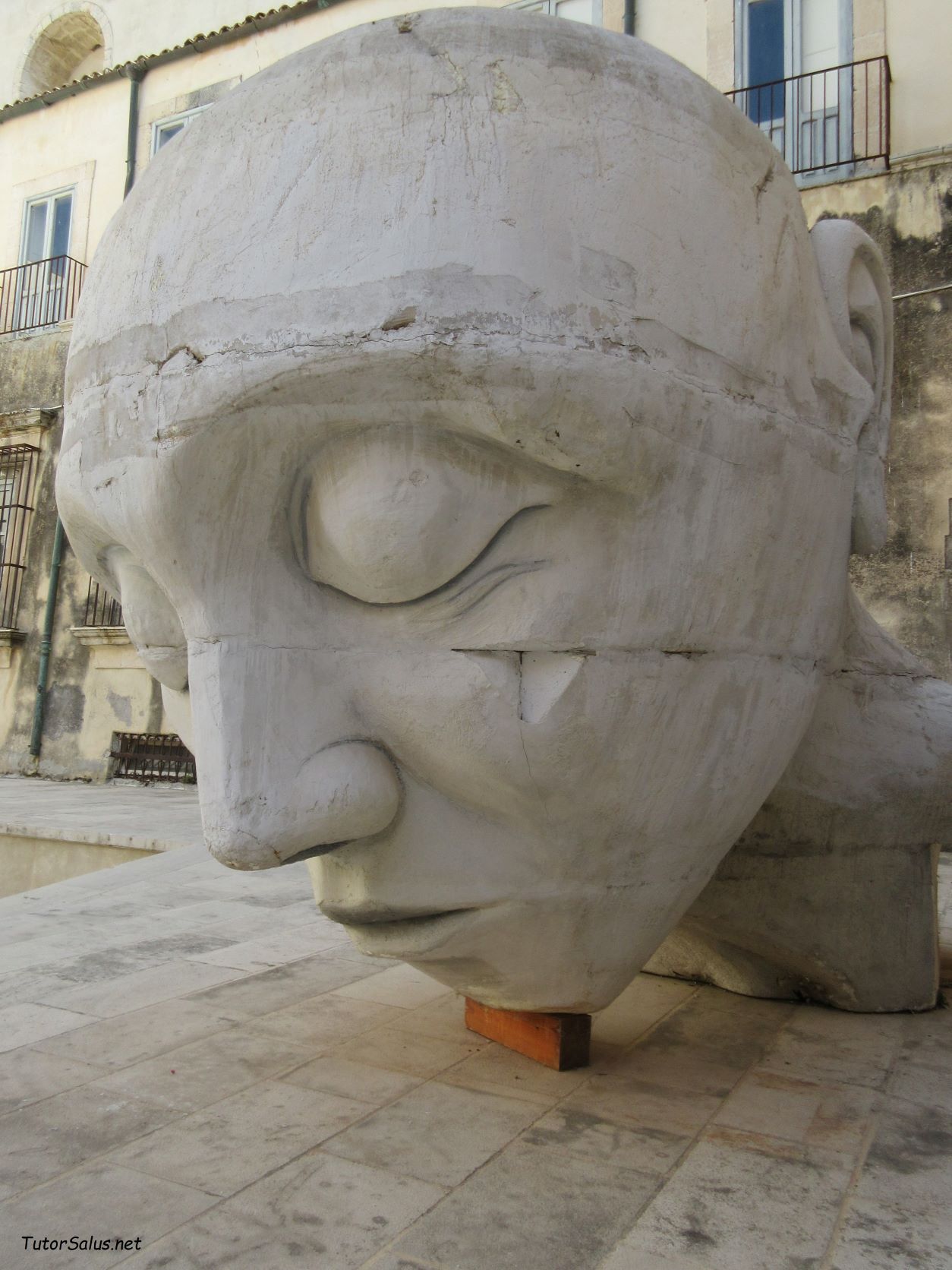A ‘sinthome’ ?

A stage frill for ‘Aedipus’ in the Courtyard of the ‘Accademia d’Arte del Teatro Antico’, at Siracusa.
“I’ll stop any arrogance from insolent people and ‘ll pull down any tyrants pride”/ Is 13, 10-11
Fairly appreciated among the historical novels of Middle Age Anglo-Saxon literature, ‘The pillars of earth’ by Ken Follett does engage the reader up to the last lines : except for, when conveniently ending, the work shifts to a resigned pietism toward the real master of so heavy pressing who was also able to escape the judgement and to whom the Catholic Church had to bend in the 1100 of England, well before king Henry 8th was crowned.
“…And for Waleran, the pity of his enemies was the worst humiliation of all.”[1]
The upbringing comes to mind – strict and Puritan – to which Ken as a child had to bend, up to his adult age and from which he tried with all his clear competence as a writer to disentangle, like from an inextricable tangle that Jacques Lacan showed to his students in order to describe the presumed un-uprooting of a ‘sinthome’[2] : except however when betting everything on the end of skein.
The only one subject, indeed able to play on the winning streak is the owner, him or herself : that is what till nowadays Freud and his psychoanalysis says to us.
Marina Bilotta Membretti, Cernusco sul Naviglio - December 10, 2021
[1] K. Follett ‘The pillars of earth’ ‘Dutton Signet – Penguin Books U.S.A. (1990), p.981
[2] J. Lacan, ‘Seminario XXIII. Il sinthomo’ (1975-1976)

